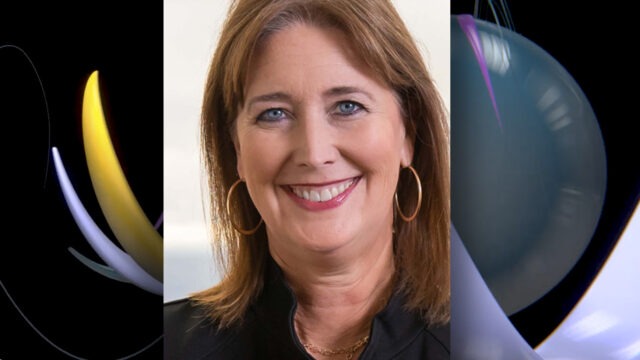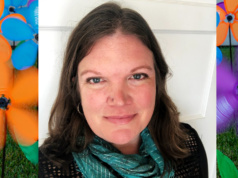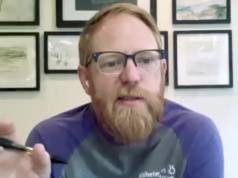Welcome, everyone, to the Answers for Elders Radio Network. And we are here on the last weekend of October, and it’s full of Halloween and all kinds of surprises, and the leaves are turning and all kinds of things are happening. Fall has come upon us and it’s beautiful. I was writing UM driving in a car yesterday out on Camano Island in Washington State, and just was so struck by the beauty of what fall brings. And you know, it reminds me of our guests today. And what we’ve been talking about this month on Answers for Elders is a lot about Alzheimer’s because we’ve had the Walks, all kinds of Alzheimer’s awareness-type content that is on our website that we’ve been posting, and we’re very honored to have the quote unquote Alzheimer’s what we call Lavender Sky team of MorningStar and we’re gonna talk a lot about the programs that MorningStar Senior Living has now but also is on the cutting edge of some new technologies and things like that, and so we’re very honored.
We’re gonna actually have three guests with us today, So for those of you that are going to spend the hour with us, we’re very excited. The first individual is Julie Wilkins, and we’re gonna talk about Mindful Living. And then we’re going to have Ignatio from the brand new community in San José. And Ignatio, you’re gonna talk a lot about the specialized program that you guys are implementing. hen for the last half of our hour, the director of the Lavender Sky program Rebecca Martin will be with us to talk a lot about Alzheimer’s and dementia. So welcome all of you.
– Thank you for having us.
– So Julie, welcome. I want to talk to you a little bit about Mindful Living. What does that mean? And tell us about your program.
– I represent a company called ONR who recently joined with EmpowerMe Wellness, and we serve Ignacio’s community in terms of physical, occupational, and speech therapy. And we have designed a program called Mindful Living, and it is for anyone really that’s experiencing memory issues along that continuum or has journeyed into a dementia journey. It is based on Claudia Allen’s work of the six levels of cognition, and it is a very practical approach to working with folks who have some type of memory impairment.
– So you guys work a lot with those that have memory impairment, and when they come to you and families come to you, I guess my question is, Julie, what are the main issues that they’re that they’re experiencing?
– Typically they’re experiencing an inability to do their activities of daily living. So they might be forgetting medication, they might not be able to make a meal and and all of the sequential things that go along with that, like they used to. And then in addition to that, they’re not participating in all of the fun stuff that they like. You know, maybe they have a worship service that they always attended, maybe they went to a card group, and those are really the sweeter things in life that they’re they’re missing out on.
– Sure, and as family members are starting to see a decline, how do you tell the difference from somebody that’s just having active aging memory loss as opposed to maybe there’s something wrong? I think that’s the biggest question that families ask us at Answers for Elders.
– That’s probably one of the top questions that people will ask us. I think it’s all about really how how they are managing their day-to-day activities. Some folks have some minor memory problems that kind of come and go, whereas with dementia you will see that it’s a little more persistent or it tends to get worse. And not managing the things they used to manage as well as they used to. And they’re not maybe participating in activities like they used to totally the primary things we look for.
– I can also determine, it’s like they’re different with different people at different times. When families get together, sometimes mom or dad are so excited that they just gear themselves up and they act perfectly fine. And then the sibling that is taking care of mom and dad day-to-day, they’re seeing the decline more. I mean, have you noticed that much in what you’re doing, Julie?
– Yeah, and the sequencing of the day and the people that they interact with is very, very important. We have developed an individualized approach. So not only do we start with kind of determining what level they’re at, but we also take into consideration who those relationships are with, and you know the depth of those relationships in addition to what is the structure of their day to day. Some folks do just fine until the afternoon, and that’s when it breaks down, and we have to figure out what triggers the breakdown.
– Yeah, and the triggers are everything. It can be an anxiety situation of walking outside in the rain, or it can be a person that they see that triggers them. And of course as the mind deteriorates, sometimes they don’t know their husband or their spouse or some thing like that. So those things are also factors at times, I mean, and obviously that can go up and down for in the in the progression. So if somebody has a family member that is concerned like that, you work through MorningStar, Senior Living and on specialized programs, what specifically do you do, Julie?
– So if we have a family member that’s concerned, we’ll bring them in for a screening. And by that we do some assessments of, like I said, what their day is like, how are they managing in their residence? What things can they do, and what things are they having trouble doing, and from there we can get an idea if we need to do a little more specialty testing to delve into really what the cause of the problems are. We need the level screening that I talked about, and then from there, we set goals with the resident and the caregivers and family in mind, so everybody contributes to those goals. What are the important things for them to do? How can we keep their level of independence as much and as long as possible?
– Yeah, and I’m sure there are times that families need to have a conversation with that loved one that they’ve noticed some decline. Do you kind of help them in those types of conversations?
– I think it’s a little easier sometimes to have a therapist involved because we’re coming from the outside, hopefully having an objective view of things. But yet we also are in the community daily so we do develop that relationship of trust with our our residents. So it really is a collaborative approach.
– And it’s so interesting how the mind works, because I know when I was taking care of my mom, she had advanced vascular dementia. But, you know, as advanced as she got, I was still the daughter. She still knew how to push my buttons. The mother/daughter dynamic happens, that never goes away. So a lot of it. I had help from counseling of individuals like you of how to deal with that, because I know it’s frustrating. I always say sometimes the hardest job in the world is a caregiver who takes care of somebody with Alzheimer’s and dementia, because it is so far above a “typical pay grade.” We don’t know necessarily how to deal with somebody that’s experiencing cognition and brain loss. To have a service like MorningStar, and like Lavender Sky, and like ONR with the EmpowerMe Wellness program, that’s significant and it’s powerful and I am so impressed. So Julie, as we’re working together and like a global thing, what are your goals of your program?
– Our first goal is to really educate the resident and the caregivers about what’s happening and to let them know that there are strategies we can use to make their life more manageable and more enjoyable. And from there, we really want to choose the strategies that work the best for that individual. And that can be anything from knowing that at four o’clock, that resident gets uncomfortable and may have some behaviors because they’re cold or um they’re bored. So we really have to get to know those residents. Well, we might use strategies like touch or music. And again it’s important to know what types of music our residents like and what calms them down and what actually might, you know, make them a little more energetic too at times.
– There are no cookie-cutter solutions. Everybody has a unique brain. It operates in a different way. As professionals, you know how to recognize what makes the lights turn on, you know. It’s such an honor to have all of you here with us as we talk about this program. As we move into the hour, we’re going to talk a little bit now about specialized treatment within MorningStar Senior Living and a brand new community that’s going up in San José that is an amazing state-of-the-art facility. So, Julie, how do we reach you?
– I can be reached at JWilkins@EmpowerMe.com.
– Wonderful. For all of you that are suffering with a parent who has Alzheimer’s dementia, reach out. There may be solutions in your neighborhood that you don’t know about. And Julie, you’re an amazing resource for all of us. So thank you so much for being with us.
– Thank you for having me.











